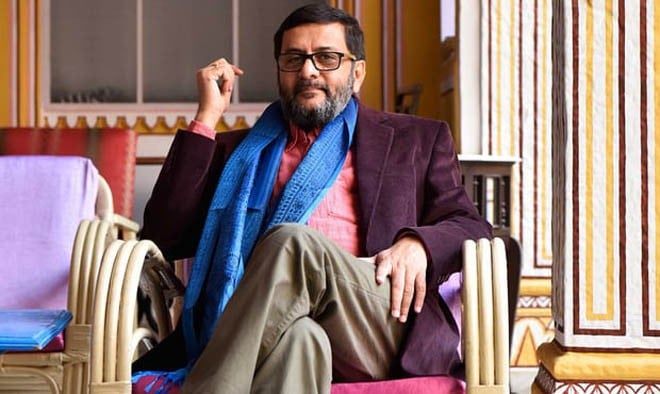
A feminist novel whose primary focus is political and not aesthetic or psychological

Ghachar Ghochar. First it sounds like a mismatch of a stir fry and a pickled dish, something tangy yet satisfying in tiny quantities. Then, it sounds jammed-up, like the electric cables rabidly swinging in the streets. You fluctuate, the phrase is both exotically edible, but also nauseating. An intestinal tongue twister. In Ghachar Ghochar, this deliberate bifurcation of meaning adopts many faces. Ghachar Ghochar is a phrase from a hidden language. Words whispered in secret, in possession of intimate and fluid implications.
The narrative arc is meticulous and simple, but in its unravelling, the author Vivek Shanbhag unearths some of the most abhorrent traits of patriarchy. A lower-middle class family in Bangalore, India is at the brink of financial ruin when the father of the household, Appa, loses his job as a salesman. But the family soon acquire wealth through a risky business venture. This wealth is generated and dubiously guarded by the uncle, Chikkappa. The family’s status quo is challenged when their daughter, Malati, marries into a family that she discovers are at odds with her own family’s new wealth and the freedom it affords, and again, when an outsider, Anita, a women’s rights activist, marries the unnamed narrator who has a token job as a director in the family’s growing spice business.
With the arrival of new wealth and outsiders threatening the equilibrium, the family engages in increasingly wicked acts to protect itself. As the family’s values are examined by outsiders, "They say the newly rich carry umbrellas to keep moonlight at bay"; rather than challenging its patriarchal structure, the family viciously guards it. Wealth, although enabling freedom of choice, also overpowers morality. New wealth makes things go Ghachar Ghochar.
Early in the story, a woman tries to visit Chikkappa at the family home, but Amma, the mother of the unnamed narrator, aggressively prevents this meeting. There is an assumption that the woman visiting is disreputable as she is unmarried and has an intimate relationship with Chikkappa. Amma humiliates the woman and drives her away. In this encounter, we learn of the circularity of patriarchal values, and how women, who are oppressed by patriarchy, can perpetuate it.
Sarah Suhail, an activist and academic based in Lahore, succinctly unpacks this, "Power is not just oppressive, it can also be generative, creating its own power". The unemployed women in the house acquire their legitimacy vis-à-vis the patriarch. An outsider who enters this matrix, disturbing the status quo, is greeted with violence. It is therefore beneficial for the women to insulate the family, to keep the family within itself. The narrator remarks, "We were thrown off balance for her love for one of us, and so we tore into her with such vengeance that she collapsed to the ground, sobbing."
To dismantle the ethics of patriarchy, things first have to go Ghachar Ghochar.
The novel begins in a café, with the narrator reflecting on the world around him with detached alienation, channelling his frustration towards a knowing waiter, Vincent. The narrator is poised to confess, to unburden himself, and Vincent acts as an interlocutor between the narrator’s internal and external worlds. The confession is unforthcoming, the story plunges backwards, and we are taken into the narrator’s past. The disengagement of the narrator from his life becomes more pronounced, and his refusal or apathy towards becoming involved in impactful decisions, especially when he is capable of astute observations of people, is self-indulgent. He is complicit in the structures of oppression.
The unnamed narrator, who idly observes changes in his family with a philosopher’s gaze, accepts the ideological justifications of patriarchy as birthed from economic circumstance, and when his wife Anita, tries to challenge his family’s ethics, he ruminates, "Without that reality behind her, it’s all a matter of empty principle."
Above all, in the context of the story, the patriarch must be defended, and patriarchy has its ideological origins in economic conditions. The financial security that a patriarch grants allows Malati to divorce her husband, allows her to roam and spend on her own terms, but it crushes Anita’s spirit for resistance -- for the men must be looked after and preserved at all costs. They must be protected from Ghachar Ghochar.
Outside of the unnamed protagonist, an everyman, other characters are functional and underdeveloped, they play out set roles. This enables a deeper exploration of ideas, but at the expense of characterisation and a psychological understanding of motive and identity. Class and economic factors take priority over personality, and this is perhaps Shanbhag’s intent. Does economic necessity override strength of character?
Shanbhag’s style is sculpted, his perspective is highly specific and minutely observed, and there is a temptation to assume that the story is partly autobiographical. Shanbhag doesn’t engage in the unnecessary. No extra details are expended on the physicality of the characters, which at times makes them appear as disembodied concepts floating in empty space, or on florid descriptions; instead the story progresses through terse dialogue and tense encounters, punctuated by the narrator’s reflections. In this sense, it resembles a play, where we learn the most about characters in the way they speak, the things they choose to talk about and to prioritise, and how they respond to situations.
Ghachar Ghochar is a feminist novel. It extracts from social and economic realities, and cautions. It could be more of an imagined text by investing in greater space for characterisation, but its primary focus is political and not aesthetic or psychological. There is a large segment of society that is complicit in patriarchy, even when not actively engaging in it. However, the idleness of those in privileged positions allows patriarchy to endure. The unnamed narrator is a quintessential bystander in structural oppression. How Ghachar Ghochar do things need to become, how entangled, before they can be altered?